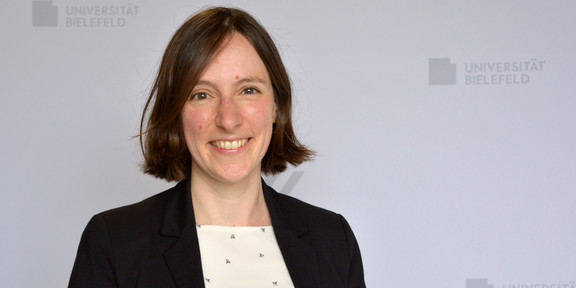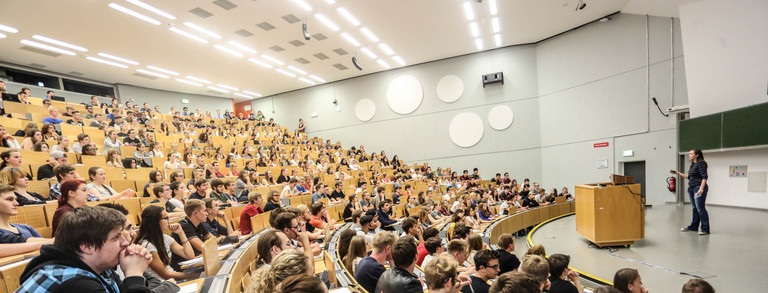AI Colloquium
The AI Colloquium is a series of lectures dedicated to cutting-edge research in the field of machine learning and artificial intelligence, coorganized by the Lamarr Institute for Machine Learning and Artificial Intelligence (Lamarr Institute), the Research Center Trustworthy Data Science and Security (RC Trust), and the Center for Data Science & Simulation at TU Dortmund University (DoDas).
Programme
Distinguished researchers deliver captivating lectures followed by vibrant discussions. However, unlike traditional colloquia, the AI Colloquium prioritizes interactive dialogue, fostering international collaboration. Conducted primarily in English, these 90-minute sessions feature hour-long lectures and 30-minute Q&A sessions. Join every Thursday at 10 AM c.t. for a stimulating exploration of cutting-edge topics. Whether in-person at our Lecture Room on Fraunhofer Strasse 25 or via Zoom, our hybrid format ensures accessibility for all.
| Day (usually) | Thursday |
| Start and end time | 10 AM c.t. - 12 AM |
| Duration of Presentation | 60 Minutes |
| Location (usually) | Lecture Room 303 3. Floor Fraunhofer Strasse 25 Dortmund |
Upcomming Events
Human-Centered Artificial Intelligence for Mental Health
- Lamarr
- RC Trust

Abstract: Artificial intelligence (AI) offers promising solutions for advancing prevention, diagnosis, and intervention in mental health. However, many approaches face challenges in terms of real-world usability and interpretability. In this talk, I will outline our human-centered approach to AI for mental health, with a focus on developing algorithms and systems that work in practical settings. Specifically, I will present our work on multimodal automated detection of psychosocial stress, integrating computer vision, remote photoplethysmography, and behavioral signal processing to capture this key risk factor for mental health. Furthermore, I will discuss two computational approaches to support psychiatric diagnosis: (1) a multimodal video-based analysis of social interactions, and (2) a network-based analysis of messaging patterns. Finally, I will address the crucial role of explainability in AI for mental health, detailing current challenges in interpreting affective models and proposing methods to improve model trustworthiness for clinical use.
Prof. Dr. Hanna Drimalla

Bio: Hanna Drimalla is a Professor of Human-Centered Artificial Intelligence at the Center for Cognitive Interaction Technology (CITEC) at Bielefeld University. Combining methods from computer science and psychology, her research focuses on automated stress measurement, computational analysis of social interaction patterns and explainablity. In 2019, she received her Ph.D. from Humboldt-Universität zu Berlin, focusing on mimicry and empathy analyzed with methods from psychophysiology and machine learning. As a postdoc, she worked on digital mental health at the Hasso-Plattner Institute at the University of Potsdam. Since 2020, she has led a junior research group on empathic artificial intelligence and the Multimodal Behavior Processing Group at Bielefeld University.
Past Events
Human-Centered Artificial Intelligence for Mental Health
- Lamarr
- RC Trust

Abstract: Artificial intelligence (AI) offers promising solutions for advancing prevention, diagnosis, and intervention in mental health. However, many approaches face challenges in terms of real-world usability and interpretability. In this talk, I will outline our human-centered approach to AI for mental health, with a focus on developing algorithms and systems that work in practical settings. Specifically, I will present our work on multimodal automated detection of psychosocial stress, integrating computer vision, remote photoplethysmography, and behavioral signal processing to capture this key risk factor for mental health. Furthermore, I will discuss two computational approaches to support psychiatric diagnosis: (1) a multimodal video-based analysis of social interactions, and (2) a network-based analysis of messaging patterns. Finally, I will address the crucial role of explainability in AI for mental health, detailing current challenges in interpreting affective models and proposing methods to improve model trustworthiness for clinical use.
Prof. Dr. Hanna Drimalla

Bio: Hanna Drimalla is a Professor of Human-Centered Artificial Intelligence at the Center for Cognitive Interaction Technology (CITEC) at Bielefeld University. Combining methods from computer science and psychology, her research focuses on automated stress measurement, computational analysis of social interaction patterns and explainablity. In 2019, she received her Ph.D. from Humboldt-Universität zu Berlin, focusing on mimicry and empathy analyzed with methods from psychophysiology and machine learning. As a postdoc, she worked on digital mental health at the Hasso-Plattner Institute at the University of Potsdam. Since 2020, she has led a junior research group on empathic artificial intelligence and the Multimodal Behavior Processing Group at Bielefeld University.
Human-Centered Artificial Intelligence for Mental Health
- Lamarr
- RC Trust

Abstract: Artificial intelligence (AI) offers promising solutions for advancing prevention, diagnosis, and intervention in mental health. However, many approaches face challenges in terms of real-world usability and interpretability. In this talk, I will outline our human-centered approach to AI for mental health, with a focus on developing algorithms and systems that work in practical settings. Specifically, I will present our work on multimodal automated detection of psychosocial stress, integrating computer vision, remote photoplethysmography, and behavioral signal processing to capture this key risk factor for mental health. Furthermore, I will discuss two computational approaches to support psychiatric diagnosis: (1) a multimodal video-based analysis of social interactions, and (2) a network-based analysis of messaging patterns. Finally, I will address the crucial role of explainability in AI for mental health, detailing current challenges in interpreting affective models and proposing methods to improve model trustworthiness for clinical use.
Prof. Dr. Hanna Drimalla

Bio: Hanna Drimalla is a Professor of Human-Centered Artificial Intelligence at the Center for Cognitive Interaction Technology (CITEC) at Bielefeld University. Combining methods from computer science and psychology, her research focuses on automated stress measurement, computational analysis of social interaction patterns and explainablity. In 2019, she received her Ph.D. from Humboldt-Universität zu Berlin, focusing on mimicry and empathy analyzed with methods from psychophysiology and machine learning. As a postdoc, she worked on digital mental health at the Hasso-Plattner Institute at the University of Potsdam. Since 2020, she has led a junior research group on empathic artificial intelligence and the Multimodal Behavior Processing Group at Bielefeld University.





